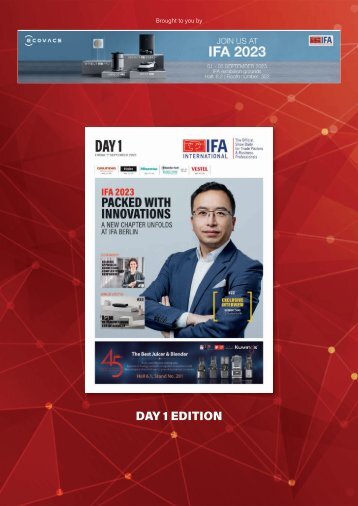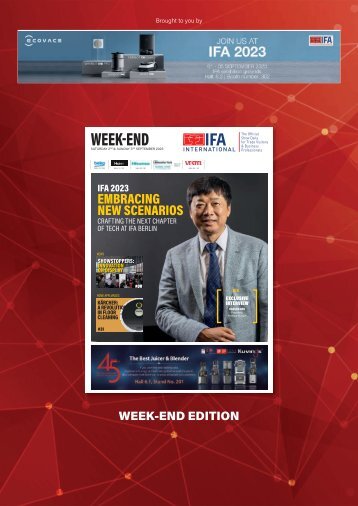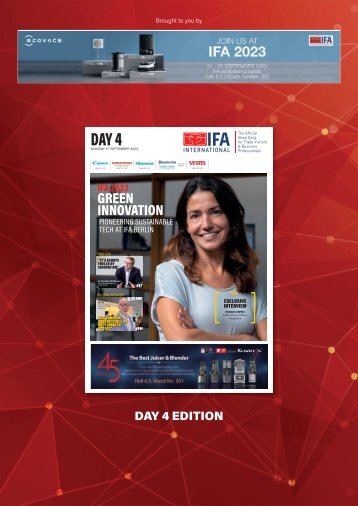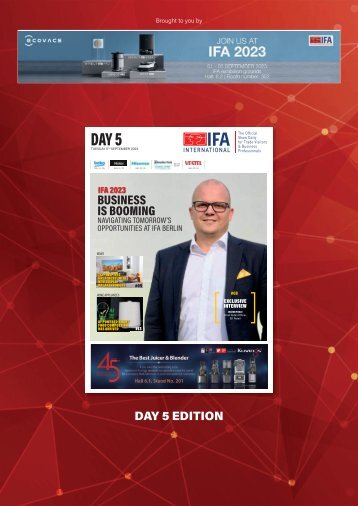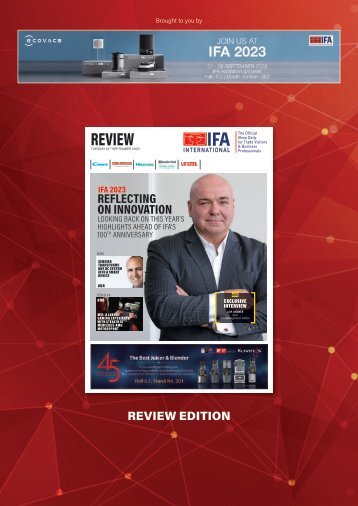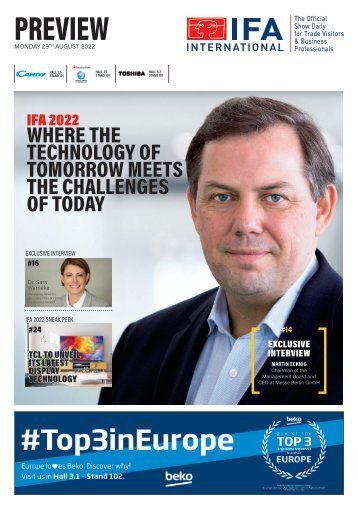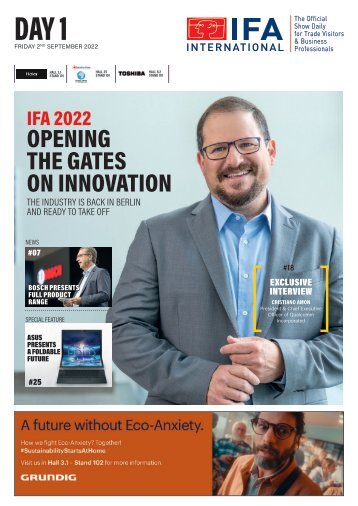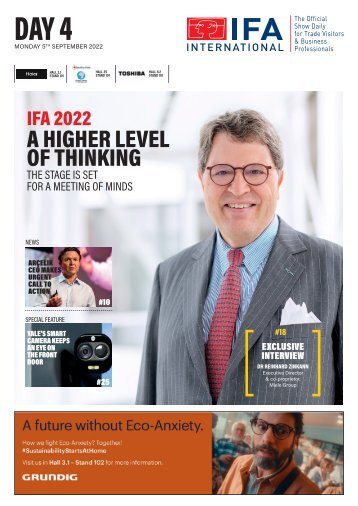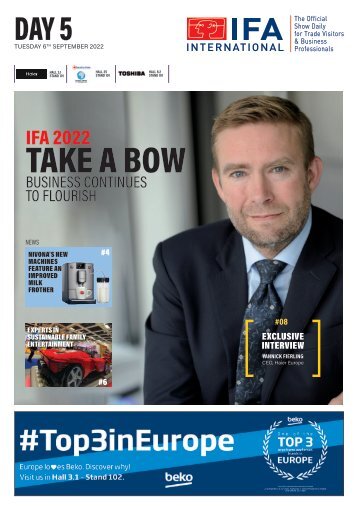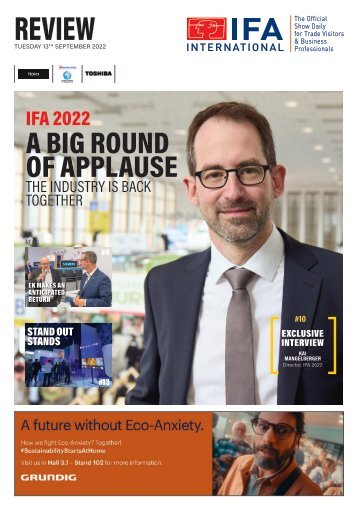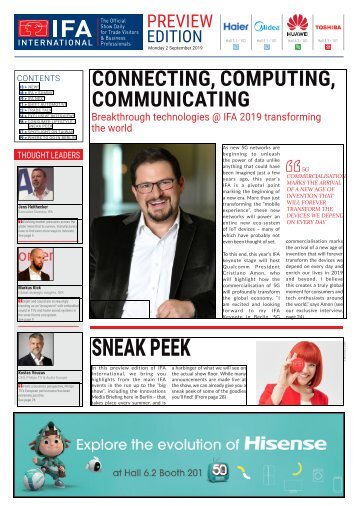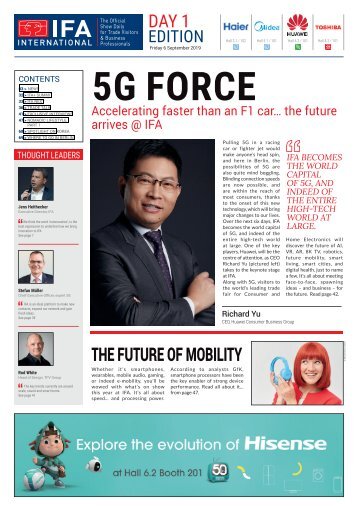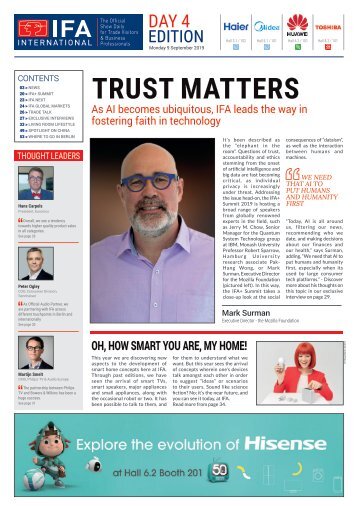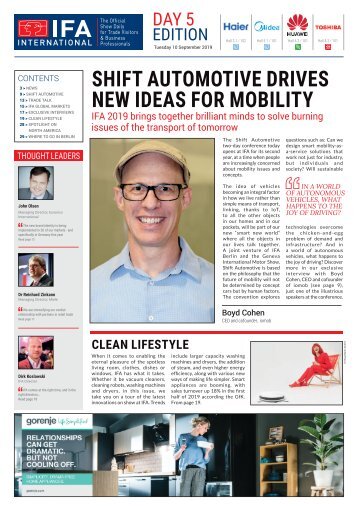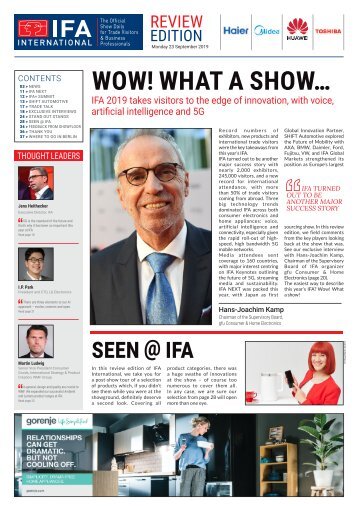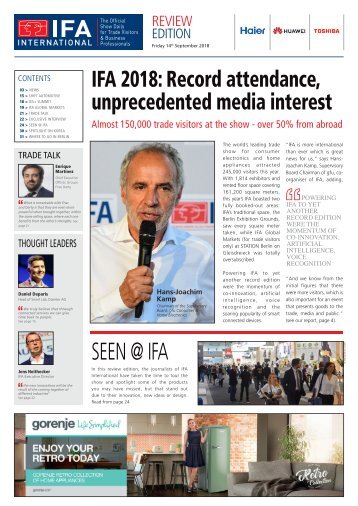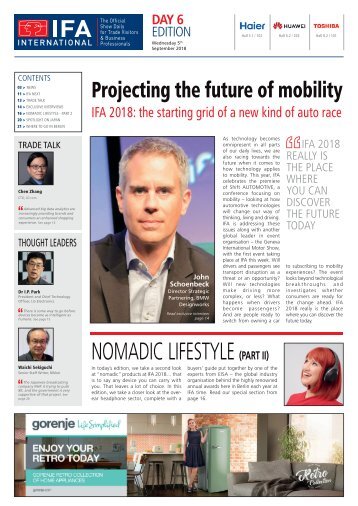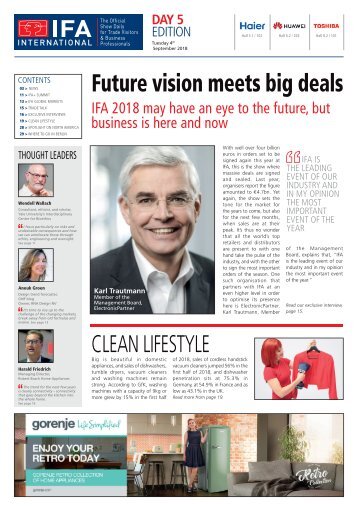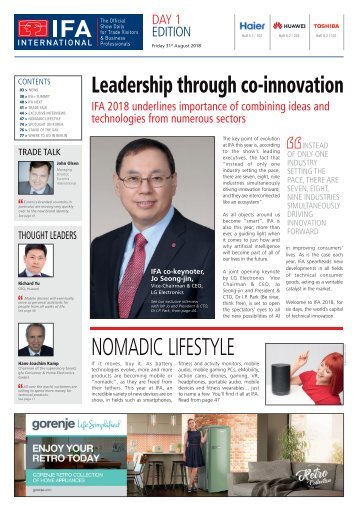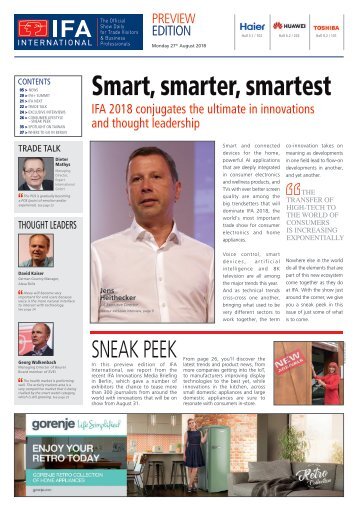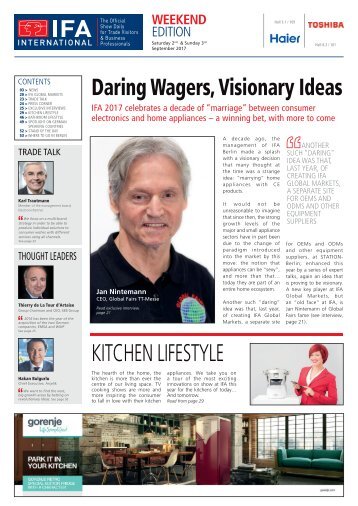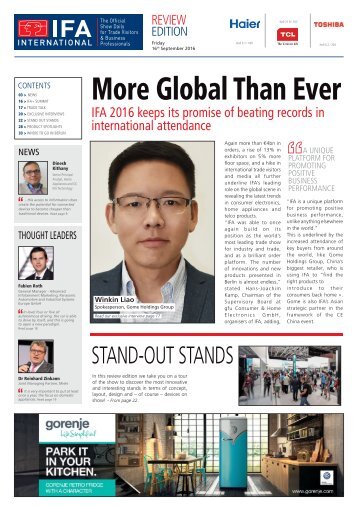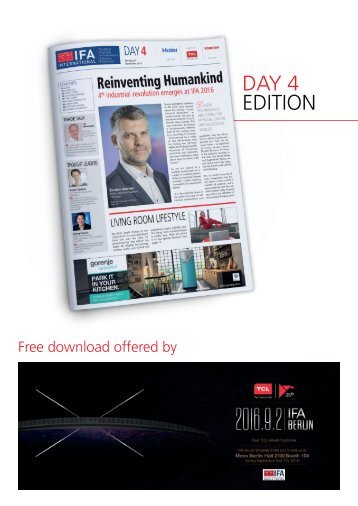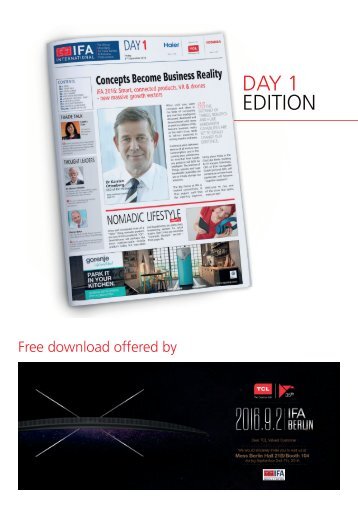
IFA International Day 5 - 2018 Edition
- Text
- Washing
- Vacuum
- Appliances
- Products
- Cleaners
- Berlin
- Innovation
- Cordless
- Global
- Consumers
- Www.cleverdis.com
NEWS The race to a
NEWS The race to a self-driving future Autonomous transport is fast becoming a reality Bobbie Seppelt is a research scientist at Massachusetts Institute of Technology Age Lab and chair of autonomous driving for the Society of Automotive Engineers. We asked her to give us a short overview of her presentation at Shift Automotive. Several technology and automotive companies are testing highly automated vehicles on public roads, and many vehicles available today can be driven with the assistance of semiautomated systems. As ride share services and traditional automotive OEMs race toward a self-driving future, consumers are confronted with the realities of transitional forms of automation. The implications of what these present-day forms of automation have on our trust and reliance will be described within a broader discussion on how to keep the human at the centre of an automated vehicle system along the road to a self-driving future. What does your work entail at the Massachusetts Institute of Technology Age Lab and the Society of Automotive Engineers? I am technical lead on two academic industry partnerships focused on developing next generation driver attention measurement tools, and on understanding ‘in the wild’ use of invehicle technologies in productionlevel driving automation systems. I am also active in several national and international initiatives to identify and frame human-centred issues related to driving automation. How will autonomous driving change human transport? It has the potential to increase mobility for disadvantaged and disabled communities; improve onroad safety; and will shift the role of humans from drivers to supervisors. Can you explain the emerging cross-over between automotive and consumer electronics? Consumer electronics runs on a continuous innovative platform, with OEMs having 4-5-year design cycles. Electronics technology necessarily bleeds into vehicle design and development because of its faster design cycle and influential computing and AI developments. How important is it to have a platform like the Shift Automotive in order to foster thought leadership in these fields? It’s incredibly important for fuelling human-centric, affective design that considers both safety and comfort to ensure longer-term adoption and improved mobility across all ages Bobbie Seppelt Research scientist, Massachusetts Institute of Technology Age Lab and chair of autonomous driving for the Society of Automotive Engineers Today at 4:55PM IFA Next Hall 26b GRAND THEATER 10
NEWS The ethical side of emerging technologies Wendell Wallach is a consultant, ethicist, and scholar at Yale University’s Interdisciplinary Centre for Bioethics. He has an international reputation as an expert on the ethical and governance concerns posed by emerging technologies, particularly artificial intelligence and neuroscience. Following his presentation at the IFA+ Summit, he spoke to IFA International about his work. I am best known for work on ethical issues and societal impact issues. I have co-authored one book called Moral machines: Teaching robots right from wrong, which was the first book to really look comprehensively at whether we could implement moral decision-making faculties in computers and robots; and my more recent book was called A dangerous master: How to keep technology from slipping beyond our control. I focus particularly on risks and undesirable consequences and how we can ameliorate those through ethics, engineering and oversight. What are your main concerns around emerging autonomous and self-driving technologies? There are hundreds of concerns I have posed, but at the IFA+ Summit I laid out the broad problems. What are the broader issues in moving down the road to increasing autonomy, particularly around responsibility, culpability and liability? What was your key message to delegates at the IFA+ Summit around AI? The joy is that there are hundreds, if not thousands, of people jumping into the arena. However, there are times that people’s ideas are relatively naïve, so I am taking the opportunity to help shape their education and understanding, and how we start to think about some of the policy agendas. Instead of silo thinking, people should be thinking systemically about how all these factors affect each other Wendell Wallach Consultant, ethicist, and scholar Yale University’s Interdisciplinary Centre for Bioethics THERE ARE HUNDREDS, IF NOT THOUSANDS, OF PEOPLE JUMPING INTO THE ARENA www.ifa-international.org IFA International • Tuesday 4 th September 2018 11
- Page 1: DAY 5 EDITION Tuesday 4 th Septembe
- Page 4 and 5: NEWS Hall 3.1 Stand 102 Haier steps
- Page 6 and 7: » AWARDS @ IFA Winners of 2018 IFA
- Page 9: NEWS © Messe Berlin GmbH IFA NEXT:
- Page 13 and 14: NEWS Be inspired - be you! Anouk Gr
- Page 15 and 16: TRADE TALK WE CREATE A MODERN, UNIF
- Page 17: EXCLUSIVE INTERVIEW Sage rolls out
- Page 20 and 21: BUYERS' GUIDE CLEAN LIFESTYLE WASHI
- Page 22 and 23: CLEAN LIFESTYLE STEAM CARE PRODUCT
- Page 25: BUYERS' GUIDE CLEAN LIFESTYLE VACUU
- Page 28 and 29: Region SPOTLIGHT ON NORTH AMERICA U
- Page 30: WHERE TO GO IN Berlin INVITATION TO
Inappropriate
Loading...
Mail this publication
Loading...
Embed
Loading...

IFA International
- IFA International 2023
- IFA International 2022
- IFA International 2020
- IFA International 2019
- IFA International 2018
- IFA International 2017
- IFA International 2016
- IFA International 2015
- IFA International 2014
- IFA International 2013
- IFA International 2012
- IFA International 2011
- IFA International 2010
- IFA International 2009
- IFA International 2008
- IFA International 2007

